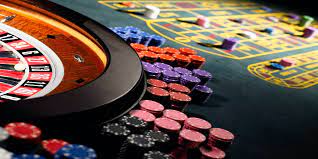Casinos have long been synonymous with glamour, excitement, and the thrill of chance. These establishments, where fortunes are won and lost in the blink of an eye, have captured the imagination of people worldwide. From the dazzling lights of Las Vegas to the opulent koplo77 of Monte Carlo, these hubs of entertainment have become cultural landmarks. However, beneath the glitz and glamour lie controversies and debates surrounding the social, economic, and psychological impact of casinos.
History of Casinos:
The history of casinos can be traced back to ancient civilizations, where rudimentary forms of gambling existed. However, the modern casino as we know it today emerged in the 17th century, with the Ridotto in Venice considered the world’s first public gambling house. Over the centuries, casinos evolved and spread across the globe, adapting to the cultural and legal landscapes of different regions.
The Casino Experience:
A trip to a casino is an immersive experience that engages all the senses. The vibrant colors, the constant hum of activity, and the jingling of coins create an atmosphere that is both thrilling and intoxicating. Whether it’s the spinning roulette wheel, the clinking of slot machines, or the strategic play at the poker table, each game offers a unique form of excitement.
Economic Impact:
Casinos are not just places of entertainment; they are also major contributors to the economy. Many cities and regions have embraced the casino industry as a means to boost tourism and generate revenue. The creation of jobs, increased tourism, and the flow of money into local economies are some of the positive economic impacts associated with casinos. However, critics argue that the economic benefits often come at the expense of increased social issues.

